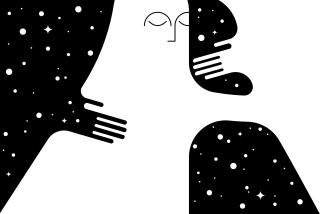For Freudians, a Nightmare That Can’t Be Repressed
Sigmund Freud was wrong? Wrong about “almost everything”?
Well now.
Ain’t that a kick in the head?
It couldn’t be true, could it? Freud a fraud? This man of our dreams, mistaken about conclusion after conclusion? This superstar and matinee idol of “Vienna General Hospital,” a virtual Elvis of psychoanalysis, as off-center as a square peg in a round hole?
Couldn’t be.
Yet there it was, a SigAlert for all to see. A published report that said today’s scientists in general--and psychiatrists in particular--now tend to believe that the theories of Sigmund Freud (1856-1939), the analyst’s analyst, were . . . let’s see, how can I put this without offending anybody . . . nuts.
Nobody used that word, of course. (It’s what we call “layman’s language.”) Nobody came right out and said that the cuckoo had permanently departed Sigmund’s clock.
But in a bad day for Freudians everywhere, from Vienna to Ventura, the results were in, and the doctor was out.
*
*
Freud, as you know, had more theories than a barrel had monkeys. He treated hysteria with hypnosis. He fiddled around with free association. He felt that dreams represented repressed desires. He put considerable stock in the Oedipal complex, which reminds me to wish my readers a belated happy Mother’s Day.
It was also Freud’s belief that the mind was composed of the id, ego and superego--or, as some of us occasionally refer to the superego, the Rush Limbaugh.
Freud was the thinking man’s shrink.
For much of the 20th century, his observations were accepted as gospel. Patients took his advice lying down the world over. I mean, let’s face it, Carl Gustav Jung had his fans, but you hardly ever heard anybody mention a Jungian slip.
Ah, but this could change.
Psychiatrists reportedly are changing their minds about this man who changed so many of their minds. Many today oppose Freud’s notions on everything from defense mechanisms to penis envy, the latter reminding me of Woody Allen’s line: “I’m one of the few men who suffers from that condition.”
Freud held the unconscious mind responsible for much human behavior. Many of today’s docs don’t.
Freud felt sex was behind most neuroses. It turns out maybe he was the one with too much sex on the brain.
Freud thought a dream expressed an unfulfilled wish. More likely, dreams mean absolutely zilch.
Freud theorized that kids fantasize about kissing one parent and killing another. In reality, kids probably fantasize about either parent raising their allowance.
But what do I know?
I have never been to a psychiatrist. The only time I ever even considered having my head examined came after the 1,000th letter to the editor encouraging me to do so.
To enhance my expertise, I stopped on my way to work to pick up three things: A copy of Freud’s “The Interpretation of Dreams,” a copy of his “The Psychopathology of Everyday Life” and a TV Guide, just in case I got bored.
“In the pages that follow,” the first book begins, “I shall bring forward proof that there is a psychological technique which makes it possible to interpret dreams, and that, if that procedure is employed, every dream reveals itself as a psychical structure which has a meaning and which can be inserted at an assignable point in the mental activities of waking life.”
I formed two immediate conclusions.
One, as an opening sentence, it wasn’t exactly “Call me Ishmael” when it came to being a grabber.
Two, I noted that Freud was pointedly offering proof of the ability to interpret dreams. This intrigued me greatly, inasmuch as I continue to have the one where two Amtrak trains are going into the same tunnel.
*
*
In a chapter called “A Dream Is the Fulfillment of a Wish,” the author reveals a dream that he says he can reproduce as often as he likes.
“If I eat anchovies or olives,” Freud writes, “or any other highly salted food in the evening, I develop thirst during the night which wakes me up. But my waking is preceded by a dream, and this always has the same content . . . namely, that I am drinking.”
And they dare to doubt this man? A man who could actually eat his way into dreaming of drinking?
There is a stimulating chapter in the other Freud book, too, called “Slips of the Tongue.” I would like to tell you more about it today, but our time is up.
*
Mike Downey’s column appears Sundays, Wednesdays and Fridays. Write to him at Times Mirror Square, Los Angeles 90053. E-mail: mike.downey@latimes.com






